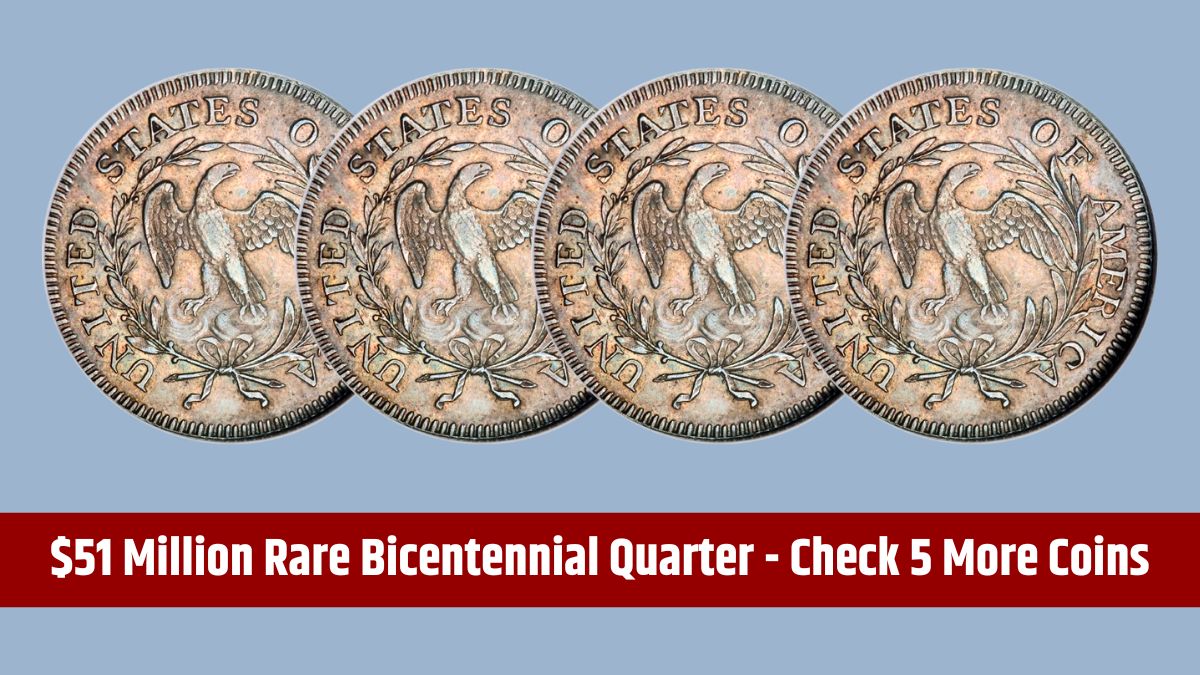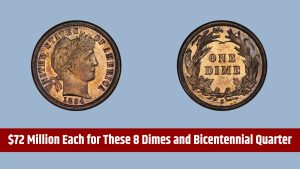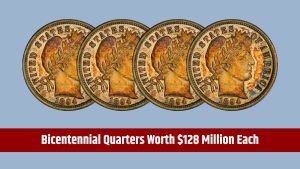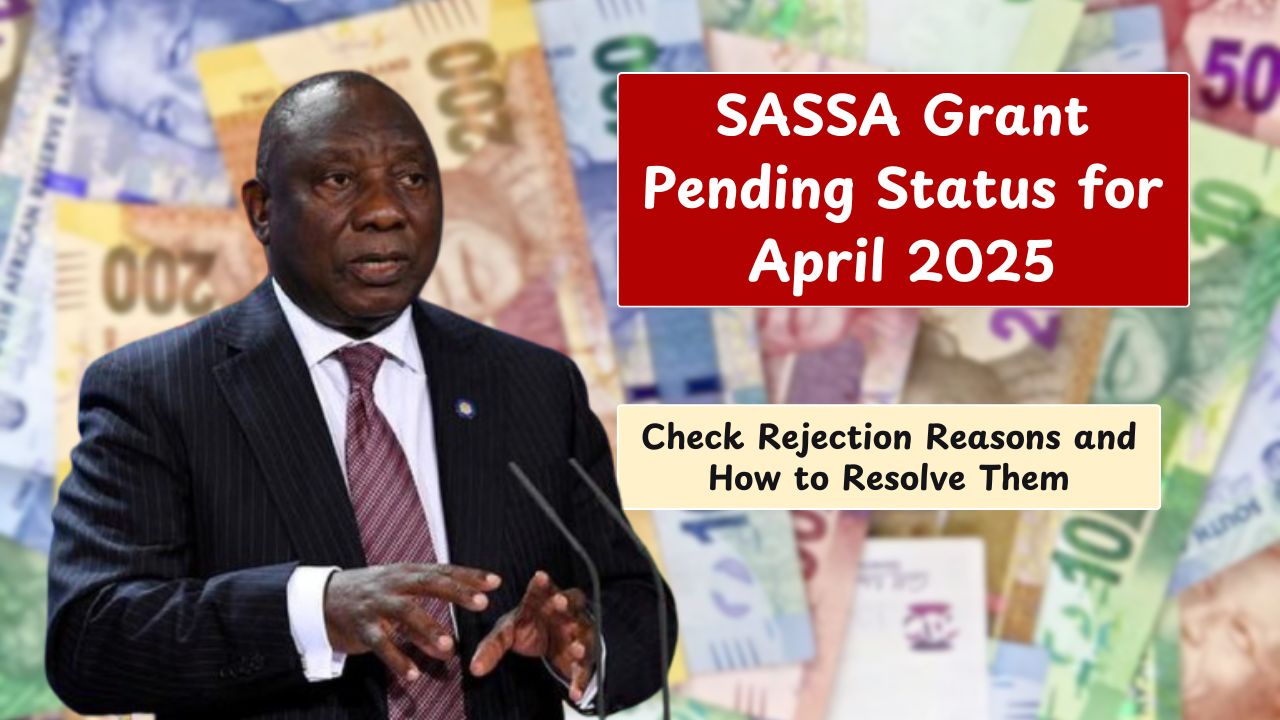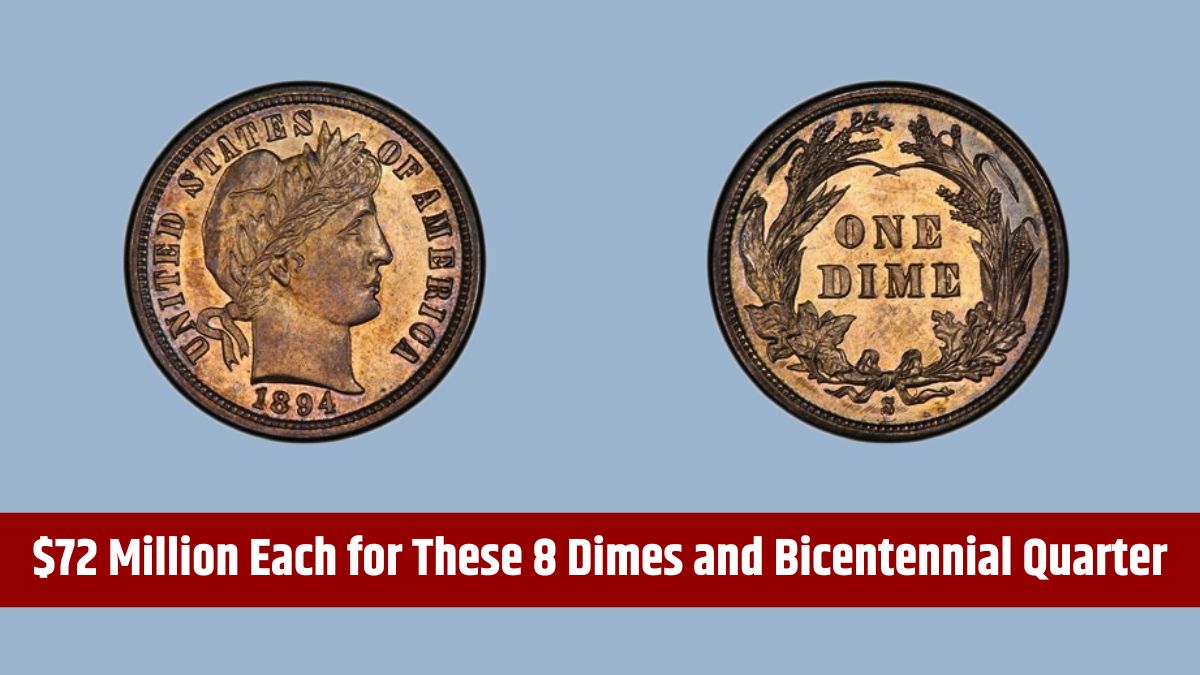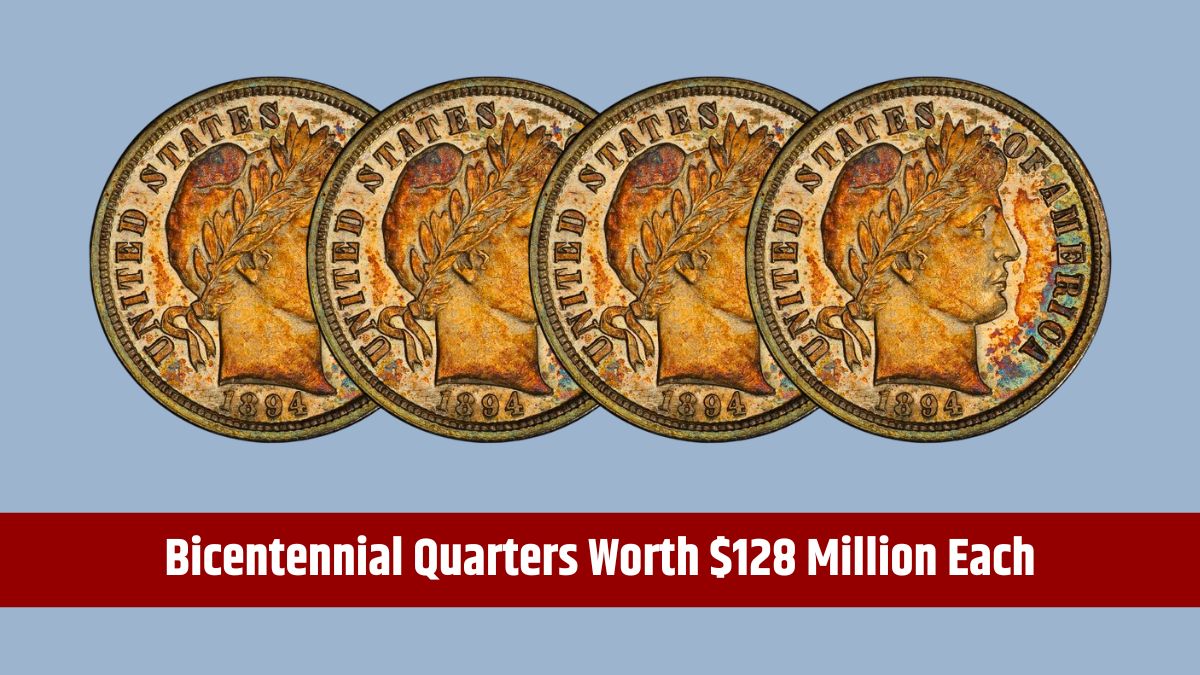Imagine reaching into your pocket and pulling out loose change—only to discover one of those coins might be worth millions. Sounds like a movie plot, right? But it’s real. That’s exactly what happened with the Rare Bicentennial Quarter, which stunned the collecting world when it sold for a staggering $51 million. Now, collectors and everyday folks alike are digging through drawers and jars, hoping to uncover a hidden treasure.
But that quarter isn’t alone. Several other coins have fetched eye-popping prices over the years. In this guide, we’ll look into five other coins that could be hiding in plain sight—plus show you how to spot one if it lands in your lap.
Jackpot
Here’s a quick look at the coins that have shaken up the world of numismatics:
| Coin Name | Estimated Value | Key Feature |
|---|---|---|
| Rare Bicentennial Quarter | $51 million | Honors 200th U.S. anniversary |
| 1796 Draped Bust Quarter | $35 million | One of the first U.S. quarters |
| 1804 Draped Bust Quarter | $40 million | Known as the “King of Quarters” |
| 1823/2 Capped Bust Quarter | $37 million | Features rare overdate error |
| 1870-S Seated Liberty Quarter | $42 million | Extremely rare, San Francisco mint |
| 1916 Standing Liberty Quarter | $30 million | First year of striking, limited mintage |
Value
So, what actually makes a coin valuable? There are a few key ingredients:
Rarity tops the list. The fewer examples of a coin in existence, the higher its potential value. Coins like the 1796 Draped Bust Quarter only had around 6,000 produced, making them incredibly scarce today.
Condition also matters—a lot. Coins that are clean, unscratched, and untarnished are prized, especially if they’re graded by services like PCGS or NGC.
History adds a whole other layer. Coins linked to major events or milestones, like the Bicentennial Quarter, attract interest well beyond traditional collectors.
Errors and variations can send values soaring. Coins with minting mistakes, such as overdates or double strikes, often become collector favorites.
Lastly, demand drives prices. A coin might be rare, but if no one wants it, it’s not worth much. High demand equals high dollar signs.
Icons
Let’s look a little deeper into five coins that have made collectors rich—and might again.
1796 Draped Bust Quarter
This beauty was one of the first quarters ever minted in the U.S. With just 6,146 made, it’s as rare as they come. A well-preserved example can snag $35 million at auction. Its design is classic Americana—Lady Liberty on one side, an eagle on the other.
1804 Draped Bust Quarter
Nicknamed the “King of Quarters,” this coin is legendary for both its rarity and backstory. Many were given as diplomatic gifts, adding historical flavor. Only a few known examples exist, and prices have reached up to $40 million.
1823/2 Capped Bust Quarter
Here’s where errors become golden—literally. This coin has an overdate error, where the year 1823 is stamped over a 1822 die. A small detail with a massive impact on value—worth around $37 million.
1870-S Seated Liberty Quarter
Minted in San Francisco with an ultra-low production run, most of these coins were melted down. Only a few are known today, pushing the value to a jaw-dropping $42 million. If you see one, don’t blink—get it verified.
1916 Standing Liberty Quarter
This coin marked a fresh design for the U.S. quarter. With limited production in its debut year, well-kept examples can hit $30 million. The design symbolizes both peace and protection—a true work of art.
Spotting
Think you might have a valuable coin? Here’s how to find out:
Check the Date and Mint Mark
Start with the basics. Look for rare years or mint marks—especially those with “S” (San Francisco), “D” (Denver), or “CC” (Carson City).
Inspect the Condition
Use a magnifying glass to look for nicks, scratches, or dulling. The cleaner, the better. Handle coins by the edges to avoid leaving prints.
Search for Errors
Look for oddities—double prints, misaligned designs, missing details. These minting mistakes can turn an ordinary coin into a jackpot.
Get It Graded
If a coin looks promising, don’t guess—get it professionally appraised. PCGS or NGC can provide certification and valuation that collectors trust.
So next time you’re sorting through your change or checking old coin jars, keep your eyes peeled. You never know what history—and value—you might uncover. These coins are more than currency—they’re time capsules, hidden stories, and maybe, your ticket to a fortune.
FAQs
What is the Bicentennial Quarter worth?
It sold for $51 million at auction due to rarity and design.
How do I know if my coin is valuable?
Check the date, condition, mint mark, and get a professional appraisal.
What is a coin overdate error?
It’s when one date is stamped over another, creating unique value.
Where can I get my coins appraised?
Services like PCGS or NGC can verify and value your coins.
Which coin is called the ‘King of Quarters’?
The 1804 Draped Bust Quarter is often known by that title.
